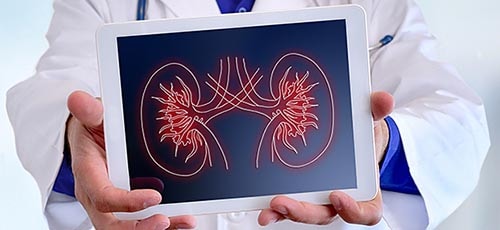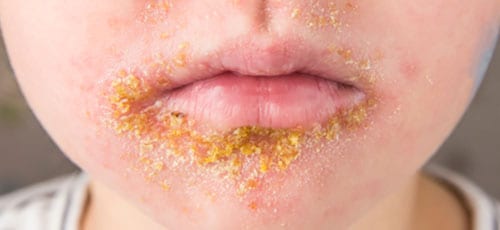Post-Streptococcal Glomerulonephritis: All You Need to Know

Post-streptococcal glomerulonephritis (gloe-mer-u-low-nuh-FRY-tis) — or PSGN — is a rare kidney disease that can develop after group A strep infections.
The main way to prevent PSGN is to prevent group A strep infections.
PSGN is an inflammatory disease
PSGN is a kidney disease that is thought to be an immune response to an earlier infection.
As the body’s defense system, the immune system is important in fighting off infections. But the immune system can mistakenly attack healthy parts of the body and cause damage.
How you get PSGN
PSGN can develop after infections caused by bacteria called group A Streptococcus (group A strep). These infections include:
PSGN is not a group A strep infection of the kidneys. Instead PSGN results from the body’s immune system fighting off strep throat, scarlet fever, or impetigo.
After the start of strep throat or scarlet fever symptoms, it usually takes about 10 days for PSGN to develop. After the start of impetigo symptoms, it takes about 3 weeks for PSGN to develop.
PSGN is not contagious
People cannot catch PSGN from someone else because it is an immune response and not an infection. However, people with a group A strep infection can spread the bacteria to others.
Symptoms usually point to kidney issues
Symptoms of PSGN can include:
- Dark, reddish-brown urine
- Edema (swelling), especially in the face, around the eyes, and in the hands and feet
- Decreased need to pee or decreased amount of urine
- Fatigue due to mild anemia (feeling tired due to low iron levels in the blood)
In addition, someone with PSGN usually has:
- Protein in the urine
- Hypertension (high blood pressure)
Some people may have no symptoms or symptoms that are so mild that they don’t seek medical help.
Some people are at increased risk
Anyone can get PSGN after having strep throat, scarlet fever, or impetigo. People at increased risk for those infections are also at increased risk for getting PSGN.
Age
PSGN is more common in children than adults.
Developing PSGN after strep throat or scarlet fever is most common in young, school-age children.
Developing PSGN after impetigo is most common in preschool-age children.
Doctors look at how well the kidneys are working
Doctors diagnose PSGN by looking at a patient’s medical history and ordering lab tests. Doctors can test urine samples to look for protein and blood. Doctors can also do a blood test to see how well the kidneys are working. They can also determine if a patient recently had a group A strep infection.
Treatment focuses on managing swelling, blood pressure
Treatment of PSGN focuses on managing symptoms as needed:
- Decreasing swelling by limiting salt and water intake or by prescribing a diuretic (medication that increases the flow of urine)
- Managing high blood pressure through blood pressure medication
Treatment may include antibiotics
People with PSGN who still have group A strep bacteria in their throat are often provided antibiotics.
People with strep throat or scarlet fever should stay home from work, school, or daycare until they:
- No longer have a fever
AND
- Have taken antibiotics for at least 12 to 24 hours; ask the doctor how long you should stay home after starting antibiotics
Antibiotic dos and don’ts
- Do take the prescription exactly as the doctor says to.
- Don’t stop taking the medicine, even if you or your child feels better, unless the doctor says to stop.
You can find more guidance on taking antibiotics on CDC’s Antibiotic Do’s & Don’ts Page.
Serious complications include long-term kidney damage
Most people who develop PSGN recover within a few weeks without any complications. While rare, long-term kidney damage, including kidney failure, can occur. These rare complications are more common in adults than children.
Protect yourself and others
The main way to prevent PSGN is to prevent group A strep infections like strep throat, scarlet fever, and impetigo. Getting a group A strep infection does not protect someone from getting it again in the future. There are no vaccines to prevent group A strep. However, there are things people can do to protect themselves and others.
Good hygiene
The best way to keep from getting or spreading group A strep bacteria is to wash your hands often. This is especially important after coughing or sneezing and before preparing foods or eating.
To prevent group A strep infections, you should:
- Cover your mouth and nose with a tissue when you cough or sneeze.
- Put your used tissue in the waste basket.
- Cough or sneeze into your upper sleeve or elbow, not your hands, if you don’t have a tissue.
- Wash your hands often with soap and water for at least 20 seconds.
- Use an alcohol-based hand rub if soap and water are not available.
You should also wash glasses, utensils, and plates after someone who is sick uses them. These items are safe for others to use once washed.
Antibiotics
Antibiotics help prevent someone with a group A strep infection from spreading the bacteria to others.



